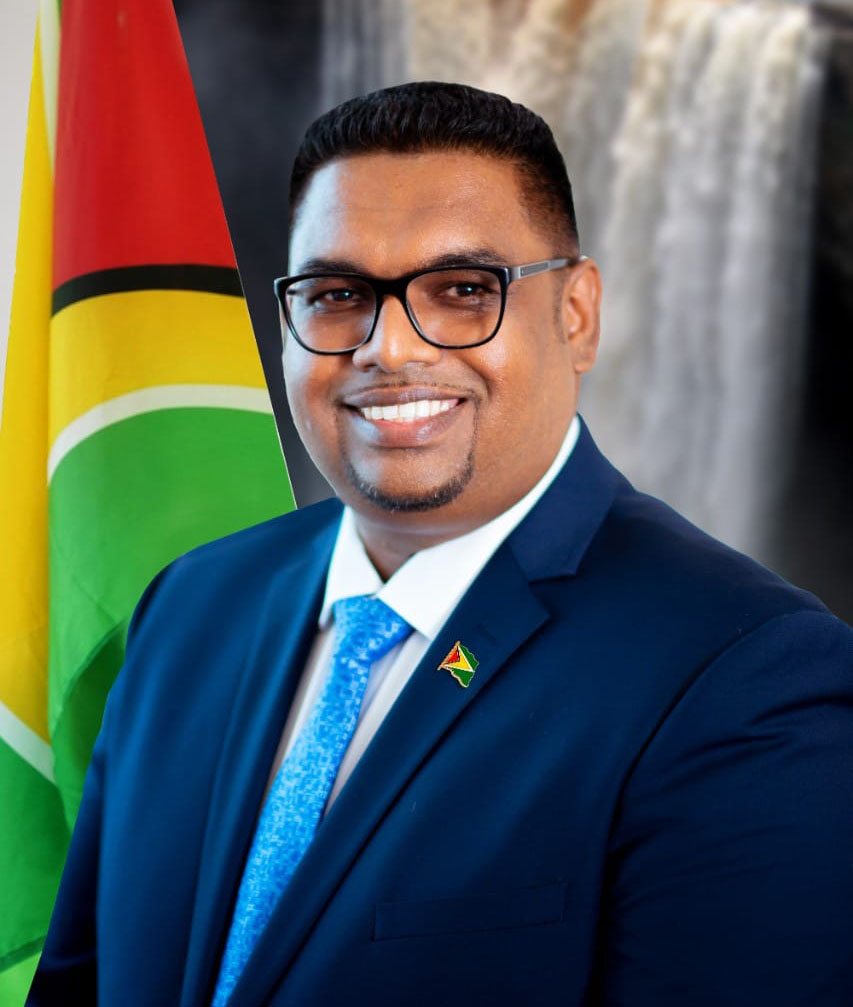Addressing the Trinidad and Tobago Manufacturers’ Association (TTMA) President’s Dinner and Award Ceremony on Tuesday evening, Guyana’s President Irfaan Ali called for the removal of “nonsensical” barriers that hinder intra-regional food trade within CARICOM.
Ali was at the time outlining the challenges of CARICOM’s Single Market and Economy (CSME), pointing out that it is not a lack of collective decisions at the level of heads of government rather the commitment of individual governments.
“Many times people believe that the heads are not making decisions. So it’s not a lack of decision it is our ability as individual states to take seriously those decisions and implement those decisions. This is a concern…we cannot move forward regionally as a people, we cannot move forward as a collective if we are not willing to act in a scrupulous manner,” Ali told the TTMA gathering via his virtual appearance.
“I have the impediment of trade by country for imports and exports and some of this is nonsensical. Some of these barriers that are imposed can be withdrawn overnight. If you’re serious about building capacity and open up opportunity,” the President added.
Georgetown has long complained about a host of barriers thrown up by Port-of-Spain to the entry of Guyanese goods. Only halting progress has been made over many years.
Providing a closer look at the intra-regional trade in food, Ali pointed out that the region imports close to three times more food than it exports. The same goes for manufactured goods. He told the Manufacturing Association that this is in spite of the region having the capacity to significantly reduce those numbers but producing the same products or manufacturing alternatives.
“We’re doing so (importing more than exporting) when we have energy costs in countries in the region that are as competitive as any other in the world. So what’s lacking, what is causing the gap?” he questioned.
He told the TTMA that they now have an opportunity to rally their sister organisations in other regional countries to come together to meet the demand for all of the imported products that enter the region. Speaking directly to the possibilities of collaboration between Guyana and Trinidad, Ali said with the twin-island republic’s better-developed port facilities, low-cost energy and locational advantages it has the possibility of becoming “a major processing, packaging and manufacturing hub for food.”
“We have strong bilateral cooperation (and) we have cross border investment arrangements but how do we look at marrying the competitive advantage of Trinidad to the competitive advantage of Guyana in developing industries and opportunities for manufacturing and services? Look at agriculture,” he said.
He outlined that with Guyana’s agricultural advantages it can be a mutually beneficial partnership between both countries and pledged his government’s support in creating the legislative framework to facilitate such investments.
“Indeed, this collaboration must be to the mutual benefit of both countries, solidifying the partnership between our countries. As you know, Guyana is undergoing an incredible transformation driven by the oil and gas sector opening up many opportunities and improving access to resources that will only serve to accelerate this transformation…the favourable economic outlook brings incredible opportunities, including prospects for greater cooperation with our regional partners both government and private sector,” he noted.
In that regard, President Ali said that Guyana can benefit from the experience and expertise of its neighbours who have had similar experiences and challenges. He added that his government also recognizes the importance of strong, sustainable real economic growth as evident in its non-oil economy expanding by 4.8% in the first half of the year.
He further explained that his administration’s policies are geared not only to the rapidly expanding oil and gas sector but is also geared towards the traditional sectors as well.
He told the TTMA that Guyana takes its responsibilities to CARICOM and its development seriously. He said that his government is not sitting back and waiting for investors to come in rather they have been spending resources in expanding infrastructure to invite investors in.
President Ali identified the current COVID-19 pandemic and its fallout, particularly on the global supply chain resulting in global shortages and inflation.
“That is why we have to wrap ourselves around a common objective to see our operating space as one and remove those barriers that have kept back the food production system. And those barriers have been nothing but a hindrance to our countries in the region. If we are not prepared to do this—then we are not serious,” he posited.






